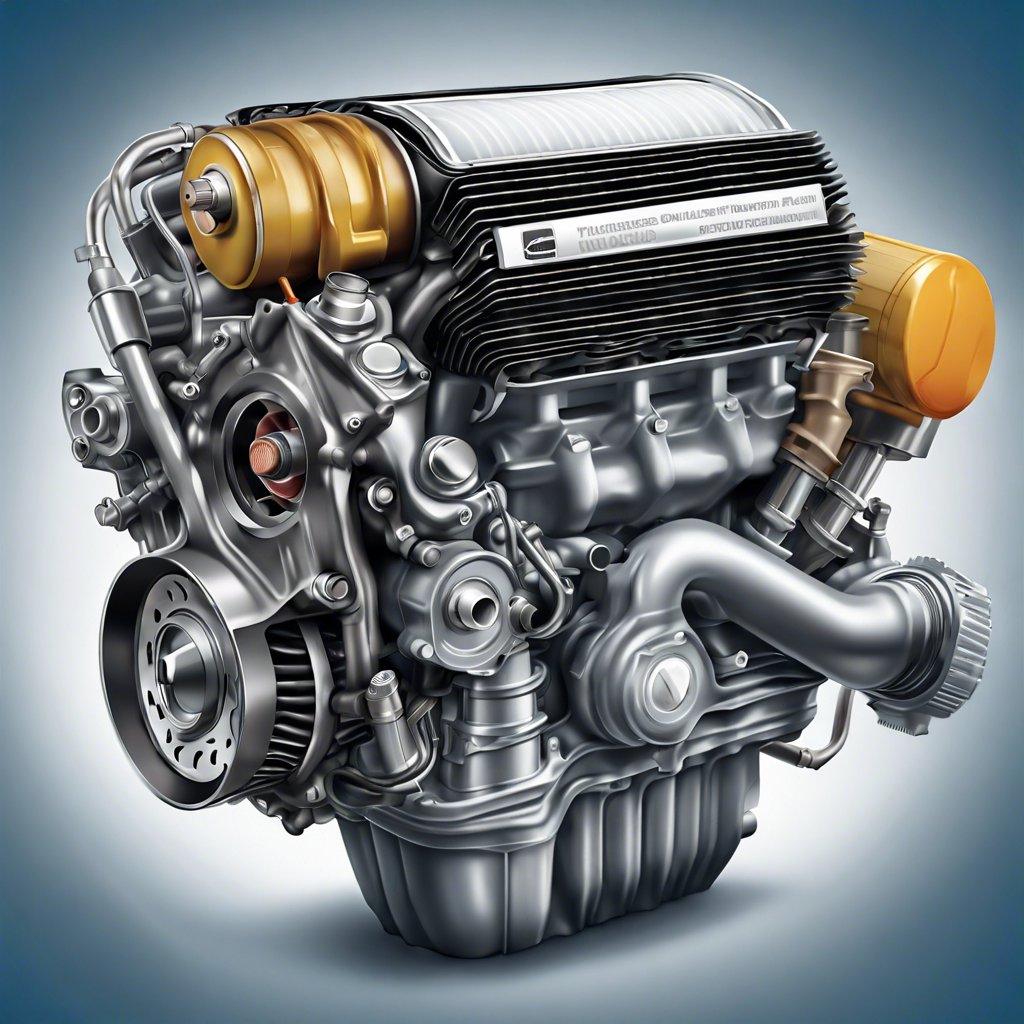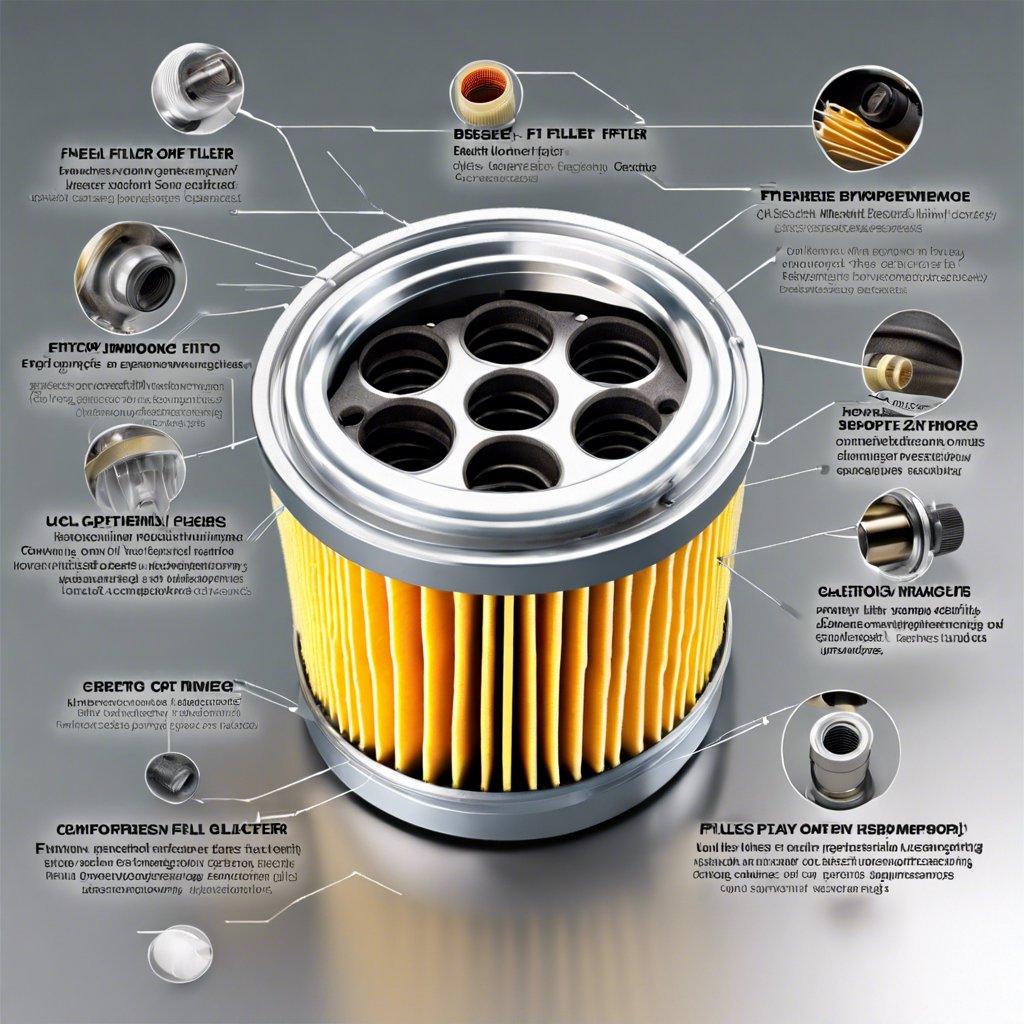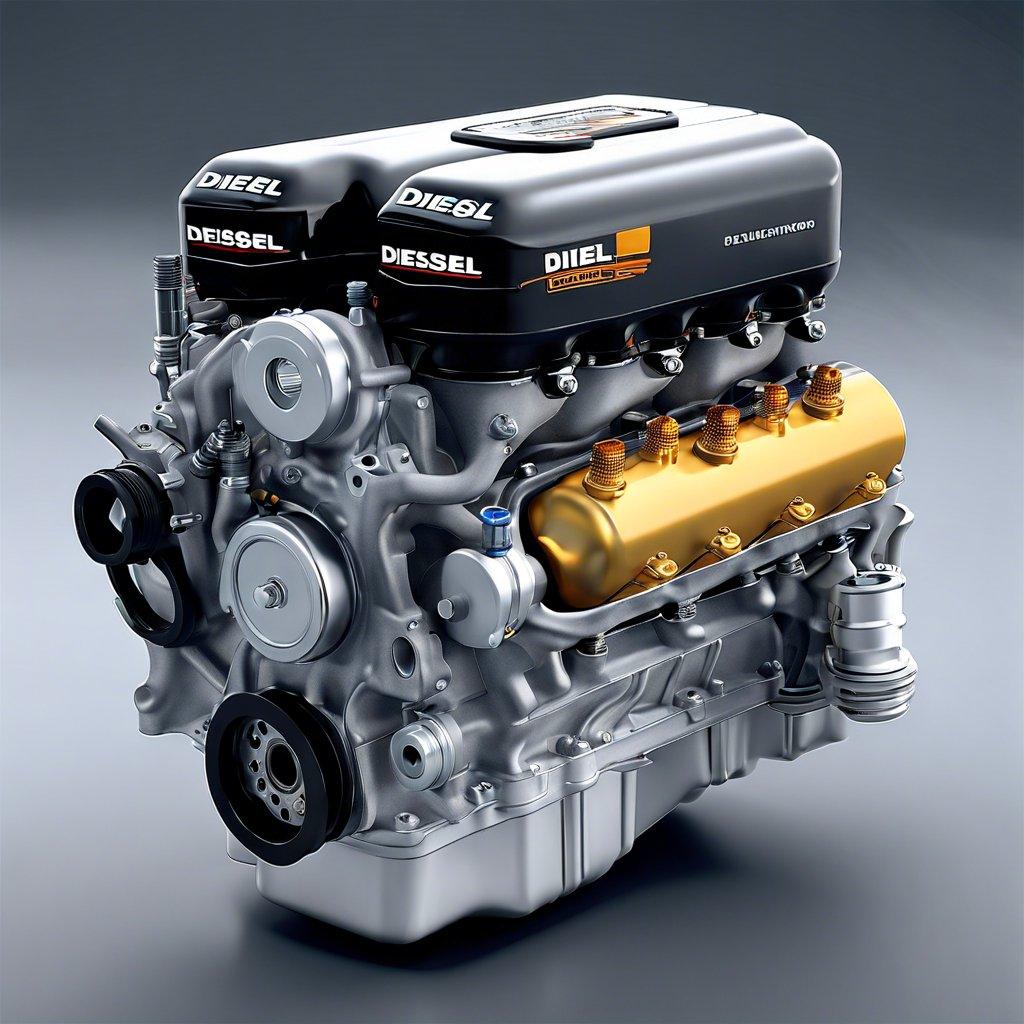Deciding When to Change Your Fuel Filter for Optimal Performance
Identifying the Optimal Replacement Interval for Fuel Filters

Importance of Fuel Filters
Fuel filters play a crucial role in maintaining the optimal performance and longevity of an engine. They are responsible for removing contaminants, such as dirt, rust, and other impurities, from the fuel before it reaches the engine’s fuel system. Ensuring that the fuel filter is replaced at the appropriate interval is essential for maintaining engine efficiency and preventing costly repairs.
Factors Influencing Fuel Filter Replacement
The optimal replacement interval for a fuel filter can vary depending on several factors, including:
- Driving Conditions: Vehicles operated in harsh environments, such as off-road or dusty conditions, may require more frequent fuel filter replacements compared to those driven in more favorable conditions.
- Fuel Quality: Poor-quality fuel can accelerate the buildup of contaminants, leading to a shorter fuel filter lifespan.
- Mileage: As a general guideline, most manufacturers recommend replacing the fuel filter every 30,000 to 50,000 miles or as specified in the vehicle’s maintenance schedule.
Identifying the Optimal Replacement Interval
To determine the optimal replacement interval for your vehicle’s fuel filter, consider the following steps:
- Consult your vehicle’s owner’s manual or maintenance schedule to find the manufacturer’s recommended replacement interval.
- Assess your driving conditions and fuel quality. If you operate in harsh environments or use lower-quality fuel, you may need to replace the fuel filter more frequently.
- Monitor the performance of your engine, such as any noticeable changes in fuel efficiency, engine power, or idling behavior. These can be indicators that the fuel filter needs to be replaced.
- Periodically inspect the fuel filter for visible signs of contamination, such as discoloration or debris buildup.
Fuel Filter Replacement Procedure
Replacing a fuel filter should be performed by a qualified technician or following the instructions provided in your vehicle’s owner’s manual. The general steps for fuel filter replacement include:
- Locating the fuel filter, which is typically located near the fuel tank or in the engine compartment.
- Disconnecting the fuel supply and return lines from the filter.
- Removing the old filter and installing the new one, ensuring proper orientation and secure connections.
- Reconnecting the fuel lines and checking for any leaks.
- Resetting any necessary fuel system components, such as the fuel pressure regulator.
Maintaining the optimal replacement interval for your vehicle’s fuel filter is essential for ensuring optimal engine performance, fuel efficiency, and long-term engine health. By following the manufacturer’s recommendations and considering the factors that can influence fuel filter lifespan, you can proactively address fuel system issues and prevent costly repairs.
Ensuring Maximum Efficiency: When to Change Your Fuel Filter
Understanding the Importance of Fuel Filters
Fuel filters play a crucial role in maintaining the optimal performance of your vehicle’s engine. They act as the first line of defense, trapping dirt, debris, and other contaminants that can potentially damage sensitive fuel system components, such as injectors and fuel pumps.
Signs It’s Time to Change the Fuel Filter
Monitoring the following indicators can help you determine when it’s time to replace your fuel filter:
- Decreased Fuel Efficiency: If you notice a sudden drop in your vehicle’s fuel economy, it could be a sign that the fuel filter is clogged, restricting the flow of fuel to the engine.
- Rough Idling or Stalling: A clogged fuel filter can cause the engine to run rough, stall, or experience difficulty starting, especially at idle.
- Reduced Engine Power: A blocked fuel filter can limit the amount of fuel reaching the engine, resulting in a noticeable loss of power and acceleration.
- Increased Fuel Pump Noise: As the fuel filter becomes more restrictive, the fuel pump may have to work harder, causing it to become noisier.
Recommended Fuel Filter Replacement Intervals
| Driving Conditions | Replacement Interval |
|---|---|
| Normal Driving | Every 30,000 to 50,000 miles |
| Severe Driving (Towing, Dusty Conditions) | Every 15,000 to 30,000 miles |
It’s important to consult your vehicle’s owner’s manual for the manufacturer’s recommended fuel filter replacement interval, as this may vary depending on the make and model of your vehicle.
Maximizing Engine Performance: The Crucial Role of Fuel Filter Maintenance
The Importance of Fuel Filter Maintenance
Maintaining the fuel filter in your vehicle is essential for ensuring optimal engine performance and longevity. The fuel filter plays a critical role in removing impurities and contaminants from the fuel, protecting the sensitive components of your engine from damage.
When to Change Your Fuel Filter
The recommended frequency for changing your fuel filter can vary depending on the make and model of your vehicle, as well as the driving conditions and fuel quality in your area. As a general guideline, most manufacturers recommend changing the fuel filter every 30,000 to 50,000 miles or as part of your vehicle’s regular maintenance schedule.
Signs That Your Fuel Filter Needs Replacement
There are several signs that may indicate it’s time to replace your fuel filter:
- Decreased fuel efficiency: A clogged or dirty fuel filter can restrict fuel flow, leading to a decrease in fuel efficiency and engine performance.
- Difficulty starting the engine: A blocked fuel filter can make it harder for the engine to start, especially in cold weather.
- Rough idling or stalling: A malfunctioning fuel filter can cause the engine to run rough or stall unexpectedly.
- Reduced power and acceleration: A clogged fuel filter can limit the amount of fuel reaching the engine, resulting in a loss of power and decreased acceleration.
The Benefits of Regular Fuel Filter Replacement
Regularly replacing your fuel filter can provide numerous benefits for your vehicle’s performance and longevity:
| Benefit | Description |
|---|---|
| Improved Fuel Efficiency | A clean fuel filter allows for optimal fuel flow, reducing the engine’s workload and improving fuel efficiency. |
| Enhanced Engine Performance | A well-maintained fuel filter ensures a consistent and uninterrupted fuel supply, resulting in smoother engine operation and better acceleration. |
| Increased Engine Lifespan | By protecting the engine’s sensitive components from contaminants, regular fuel filter replacement can help extend the engine’s overall lifespan. |
Maintaining the fuel filter in your vehicle is a crucial aspect of ensuring optimal engine performance and longevity. By understanding when to change your fuel filter and recognizing the signs of a malfunctioning filter, you can keep your engine running at its best and extend the life of your vehicle.
Fuel Filter Replacement: A Proactive Approach to Optimizing Engine Reliability
Understanding the Importance of Fuel Filter Replacement
The fuel filter is a critical component in any engine, responsible for removing contaminants and impurities from the fuel before it reaches the engine’s vital components. As fuel passes through the filter, it traps and collects debris, ensuring a clean and efficient fuel delivery system. Neglecting to replace the fuel filter at the recommended intervals can lead to a multitude of issues, including reduced engine performance, decreased fuel economy, and even potential engine damage.
Recognizing the Signs of a Clogged Fuel Filter
Regular fuel filter replacement is essential for maintaining optimal engine performance and reliability. However, it’s also important to be aware of the signs that indicate a need for filter replacement, even if the recommended interval has not yet been reached. Some common symptoms of a clogged fuel filter include:
- Decreased engine power and acceleration
- Increased fuel consumption
- Difficulty starting the engine
- Rough idling or stalling
Establishing a Proactive Fuel Filter Replacement Schedule
To ensure optimal engine performance and reliability, it’s recommended to replace the fuel filter at the intervals specified by the vehicle manufacturer. This information can typically be found in the owner’s manual or through consultation with a trusted automotive technician. By adhering to this schedule, you can help prevent the accumulation of contaminants and ensure a consistent flow of clean fuel to the engine.
The Benefits of Proactive Fuel Filter Replacement
Implementing a proactive fuel filter replacement strategy offers numerous benefits for engineering and technology employees, including:
| Benefit | Description |
|---|---|
| Improved Engine Performance | A clean, unobstructed fuel delivery system allows the engine to operate at its peak efficiency, resulting in improved power, acceleration, and overall responsiveness. |
| Enhanced Fuel Economy | By maintaining a well-functioning fuel filter, you can help reduce fuel consumption and optimize the engine’s fuel utilization, leading to cost savings over time. |
| Extended Engine Lifespan | Preventing contaminants from reaching the engine’s critical components can help extend the overall lifespan of the engine, reducing the need for costly repairs or replacements. |
Fuel filter replacement is a proactive measure that can significantly contribute to the optimization of engine reliability and performance. By understanding the importance of timely filter replacement, recognizing the signs of a clogged filter, and establishing a consistent replacement schedule, engineering and technology employees can help ensure the long-term health and efficiency of their vehicles. Embracing this approach can lead to improved engine performance, enhanced fuel economy, and extended engine lifespan, ultimately contributing to the overall success and productivity of your operations.




Post Comment